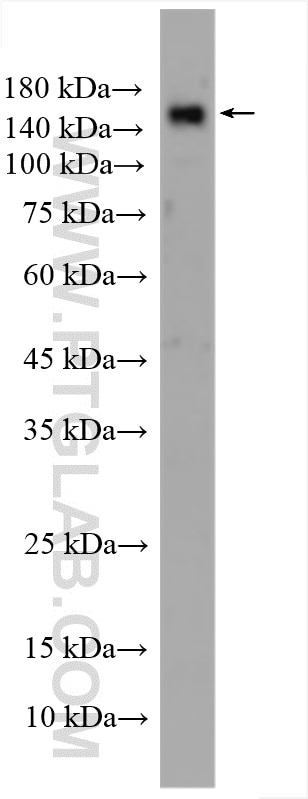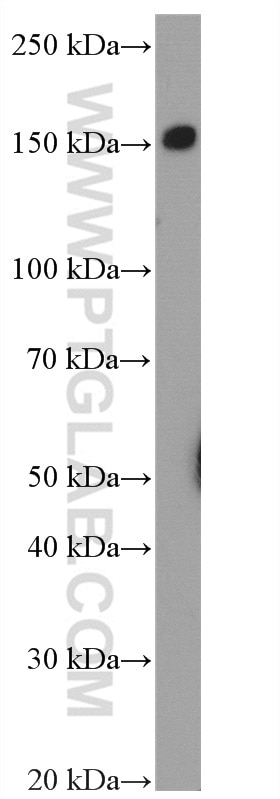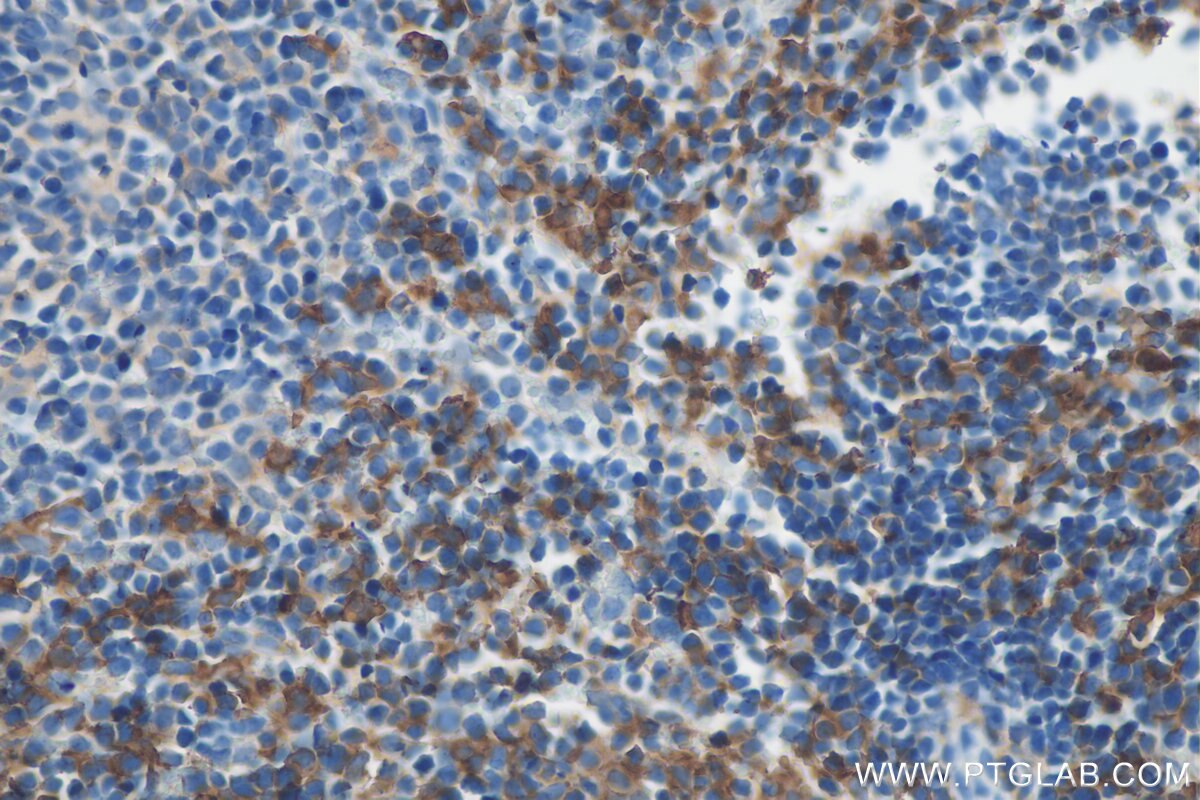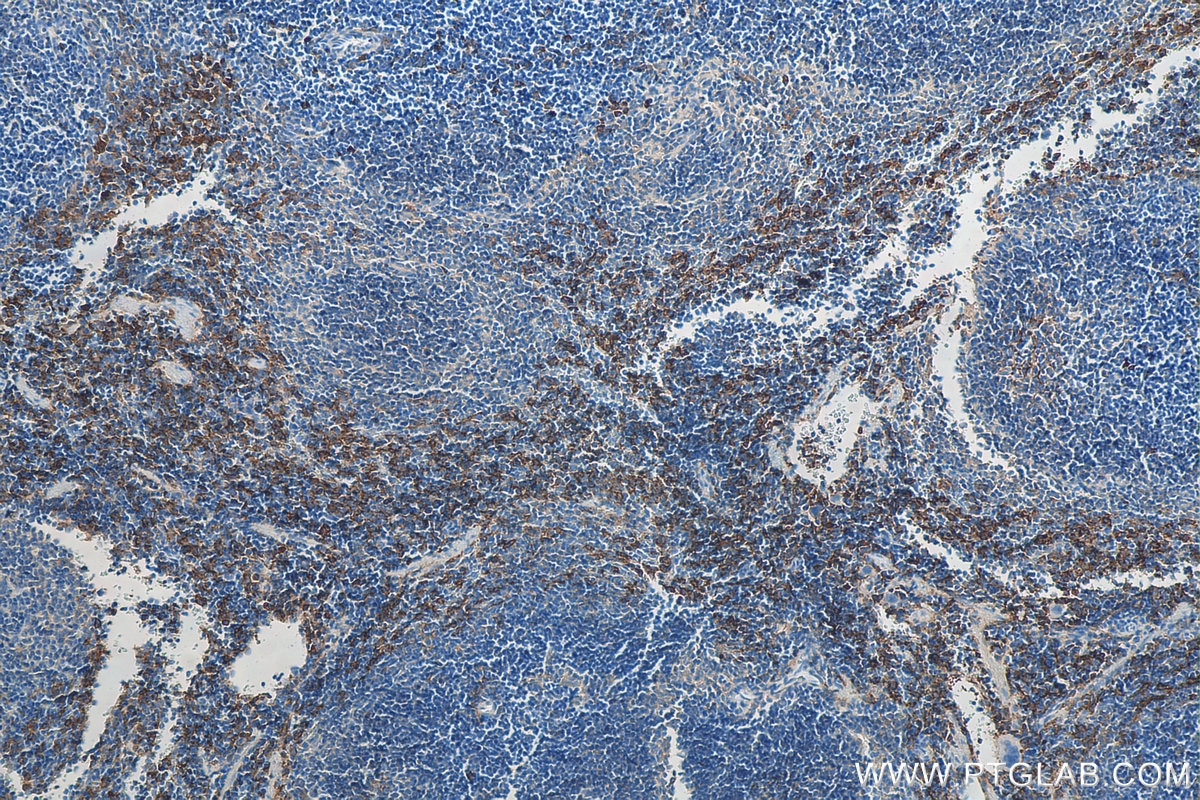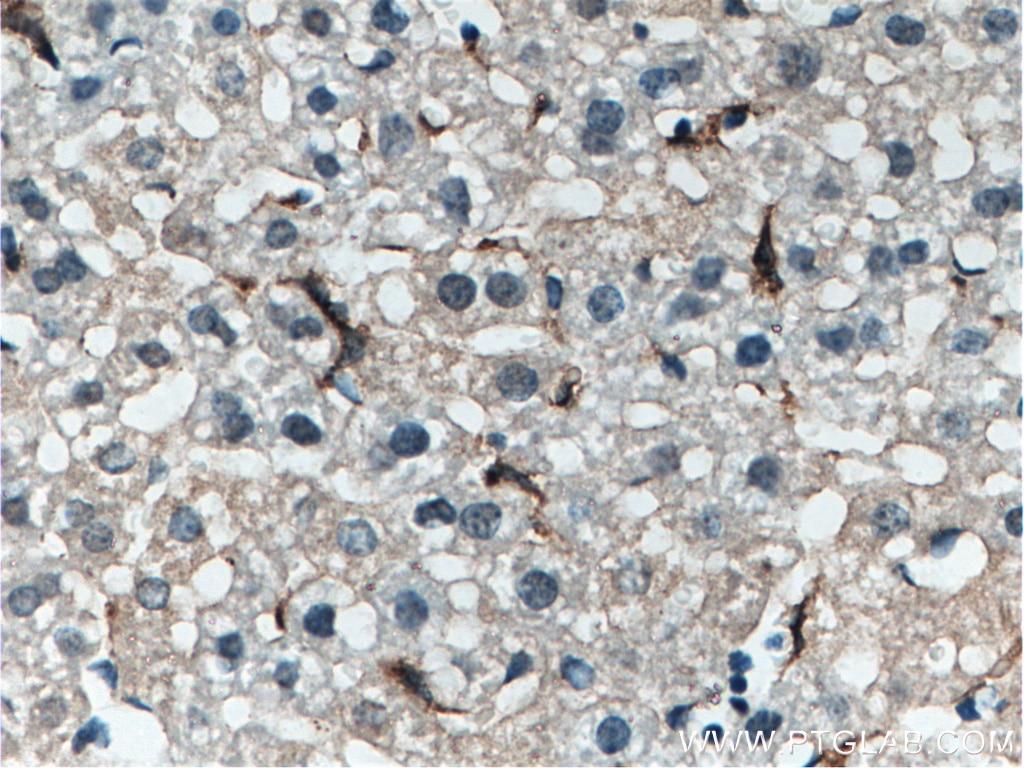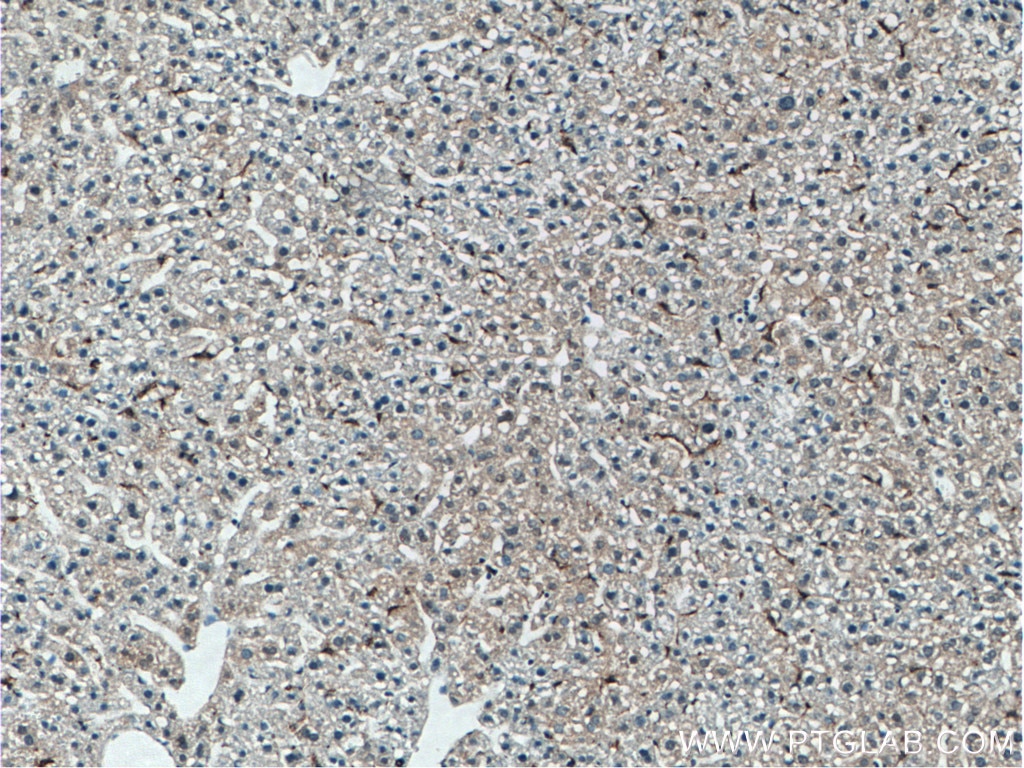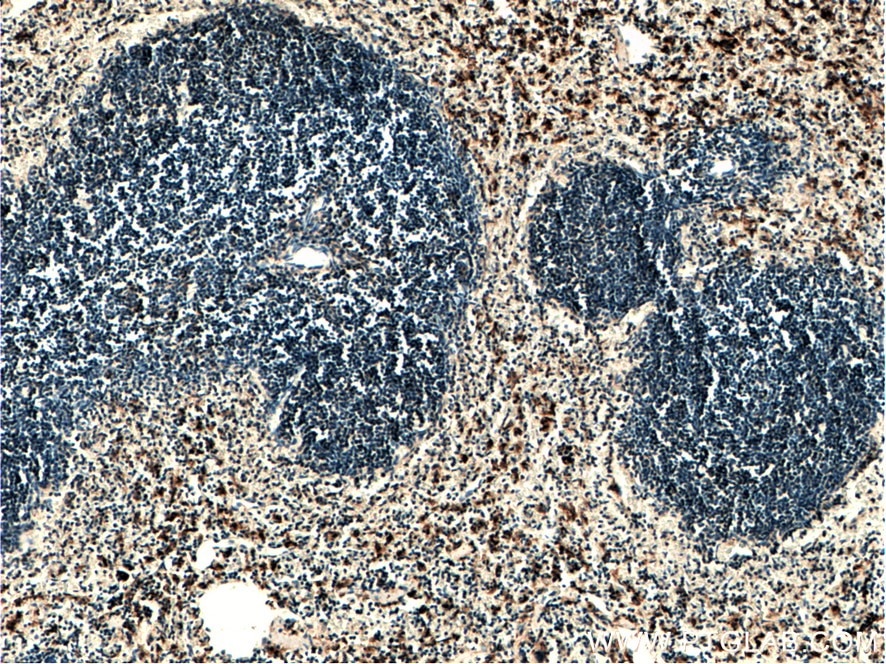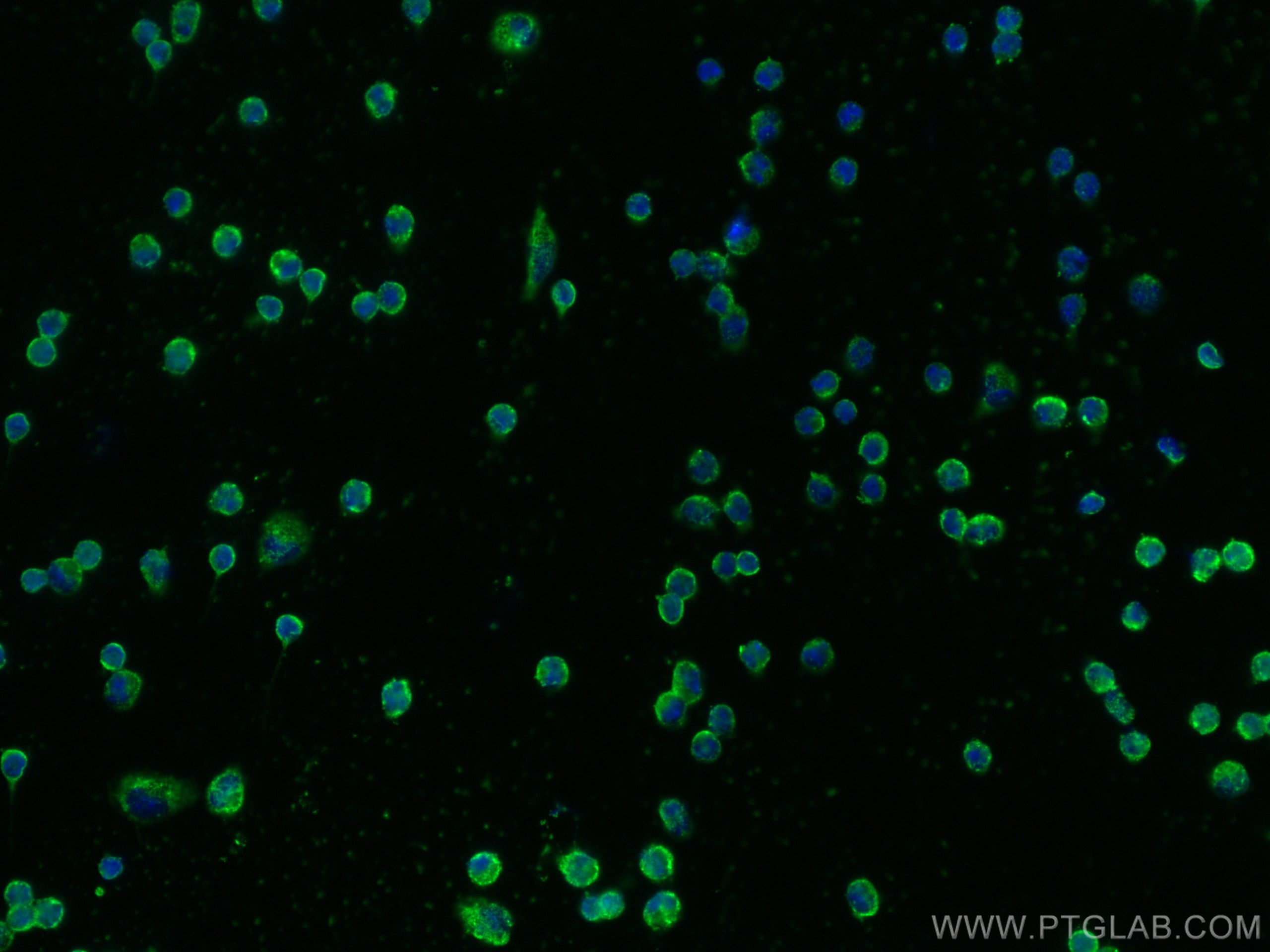Validation Data Gallery
Tested Applications
| Positive WB detected in | unboiled RAW 264.7 cells, HL-60 cells |
| Positive IHC detected in | mouse spleen tissue, mouse liver tissue Note: suggested antigen retrieval with TE buffer pH 9.0; (*) Alternatively, antigen retrieval may be performed with citrate buffer pH 6.0 |
| Positive IF/ICC detected in | mouse peritoneal macrophages |
Recommended dilution
| Application | Dilution |
|---|---|
| Western Blot (WB) | WB : 1:500-1:2000 |
| Immunohistochemistry (IHC) | IHC : 1:400-1:1600 |
| Immunofluorescence (IF)/ICC | IF/ICC : 1:50-1:500 |
| It is recommended that this reagent should be titrated in each testing system to obtain optimal results. | |
| Sample-dependent, Check data in validation data gallery. | |
Published Applications
| WB | See 6 publications below |
| IHC | See 20 publications below |
| IF | See 12 publications below |
Product Information
27044-1-AP targets EMR1 in WB, IHC, IF/ICC, ELISA applications and shows reactivity with human, mouse samples.
| Tested Reactivity | human, mouse |
| Cited Reactivity | human, mouse, rat, pig |
| Host / Isotype | Rabbit / IgG |
| Class | Polyclonal |
| Type | Antibody |
| Immunogen |
CatNo: Ag25883 Product name: Recombinant human EMR1 protein Source: e coli.-derived, PGEX-4T Tag: GST Domain: 430-510 aa of BC059395 Sequence: TEYLDIESKVINKECSEENVTLDLVAKGDKMKIGCSTIEESESTETTGVAFVSFVGMESVLNERFFKDHQAPLTTSEIKLK 相同性解析による交差性が予測される生物種 |
| Full Name | egf-like module containing, mucin-like, hormone receptor-like 1 |
| Calculated molecular weight | 886 aa, 97 kDa |
| Observed molecular weight | 160 kDa |
| GenBank accession number | BC059395 |
| Gene Symbol | EMR1 |
| Gene ID (NCBI) | 2015 |
| RRID | AB_2716814 |
| Conjugate | Unconjugated |
| Form | |
| Form | Liquid |
| Purification Method | Antigen affinity purification |
| UNIPROT ID | Q14246 |
| Storage Buffer | PBS with 0.02% sodium azide and 50% glycerol{{ptg:BufferTemp}}7.3 |
| Storage Conditions | Store at -20°C. Stable for one year after shipment. Aliquoting is unnecessary for -20oC storage. |
Background Information
EMR1 (EGF-like module containing mucin-like hormone receptor 1), also known as Adhesion G protein-coupled receptor E1 (ADGRE1), is a surface receptor with seven transmembrane segments that belong to the EGF-7-transmembrane family of G protein-coupled receptors (PMID: 14647991, 7601460). EMR1 expression is restricted to eosinophilic granulocytes, where expression is overlapping with the eotaxin receptor CCR3 and the immunoglobulin-like lectin Siglec-8. Absence on other leukocytes, including basophils, implies that EMR1 is a highly specific marker for eosinophils in humans and may be used as a novel therapeutic target for eosinophilic disorders (PMID: 17823986, 24530099). F4/80, the murine homolog of EMR1, is a marker of murine macrophage. The apparent molecular weight of F4/80 is 160 kDa, which is larger than the calculated molecular weight due to post-translational modifications (PMID: 7308288; 8647179).
Protocols
| Product Specific Protocols | |
|---|---|
| IF protocol for EMR1 antibody 27044-1-AP | Download protocol |
| IHC protocol for EMR1 antibody 27044-1-AP | Download protocol |
| WB protocol for EMR1 antibody 27044-1-AP | Download protocol |
| Standard Protocols | |
|---|---|
| Click here to view our Standard Protocols |
Publications
| Species | Application | Title |
|---|---|---|
Cell Res A phosphatidic acid-binding lncRNA SNHG9 facilitates LATS1 liquid-liquid phase separation to promote oncogenic YAP signaling. | ||
Acta Pharm Sin B A non-human primate derived anti-P-selectin glycoprotein ligand-1 antibody curtails acute pancreatitis by alleviating the inflammatory responses | ||
Autophagy Buddleoside alleviates nonalcoholic steatohepatitis by targeting the AMPK-TFEB signaling pathway | ||
Theranostics SPTBN1 inhibits inflammatory responses and hepatocarcinogenesis via the stabilization of SOCS1 and downregulation of p65 in hepatocellular carcinoma. | ||
Cancer Lett MicroRNA-15b in extracellular vesicles from arsenite-treated macrophages promotes the progression of hepatocellular carcinomas by blocking the LATS1-mediated Hippo pathway. | ||

